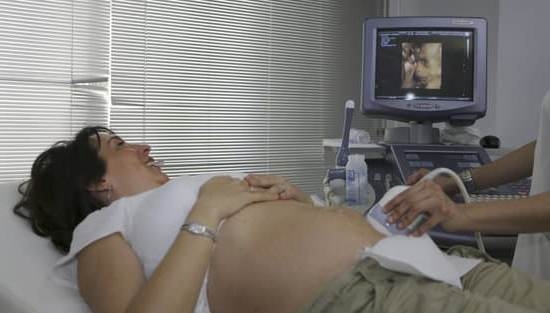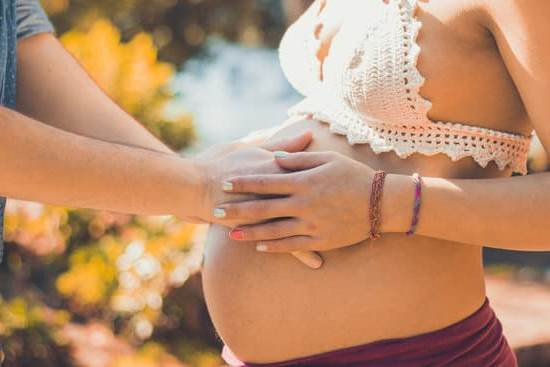Introduction
Cramping is a type of pain or discomfort in the muscles or abdomen area. It can be caused by a variety of factors, from muscle fatigue to menstrual cycles to digestive issues. During pregnancy, cramping is more common and can occur in the first, second, and third trimester due to several changes happening throughout the body. Generally speaking, cramping during pregnancy is not considered bad as long as it is not severe or recurrent.
There are a few common causes of normal pregnancy cramps that should not cause alarm:
1) Round ligament pain: During early pregnancy, round ligaments stretch and cause sharp pain on either side of your abdomen.2) Braxton Hicks contractions: These are known as “practice” contractions with no regular pattern that happen periodically throughout pregnancy.3) Gas & Constipation: As your body works hard to support two people, bloating and constipation often become part of the equation which can lead to uncomfortable tightness in your abdomen.
When to See A Doctor?
Although most cramping during pregnancy should not be cause for panic, it’s important to keep track of it and talk to a doctor if you’re concerned. Talk with your doctor if the cramps are accompanied by bleeding or pain that doesn’t go away after resting; they may need more information or suggest lifestyle adaptations such as more rest or certain exercises designed specifically for pregnant women. Cramps without any other symptoms do not typically require medical attention unless persistent or recurrent over days/weeks where further diagnosis might be needed.
Different Types of Cramping During Pregnancy, and Examples of Each
Cramping during pregnancy is a common experience, and the types and severity of cramping can vary greatly. Knowing which type of cramps are normal and when to seek medical attention can be important for pregnant women.
Types of cramps that may occur during pregnancy include:
1. Round Ligament Pain – These cramps typically occur in the second trimester and are caused by the stretching of the round ligaments which support the uterus. The pain usually starts in the lower abdomen or pelvic area and can move to either side. It usually subsides when repositioned or taking a break from activity.
2. Braxton Hicks Contractions – Often referred to as false labor pains, they don’t cause regular contractions but instead feel like little tightening inside your abdomen (or a squeezing sensation). They typically become noticeable around 20 weeks, but can start earlier.
3. Cramping with Spotting – Cramping accompanied by spotting could be a sign of miscarriage or ectopic pregnancy, so it’s important to call your doctor if you experience this type of cramping along with spotting or bleeding.
4. Placental Pain – This refers to an intense pain which may happen during the third trimester when the placenta separates from the wall of your uterus (placental abruption). This type of pain occurs suddenly, is more painful than other types of cramps, and should immediate medical attention be sought out if experienced by any pregnant woman.
Symptoms and Causes of Cramping During Pregnancy
Cramping during pregnancy can be caused by many things and is generally nothing to worry about. It can be caused by the uterus expanding, round ligament pain, constipation or gas pains, or even dehydration. It is also normal for cramping to occur as the baby moves because it causes pressure on the walls of the uterus.
In some cases, however, cramping can be a sign of a more serious issue like preterm labor or an ectopic pregnancy (which occurs when a fertilized egg implants itself outside of the uterus). If you are experiencing persistent pain that isn’t relieved by changing positions, if you’re experiencing any type of bleeding, or if your cramps suddenly become much worse it may be time to call your doctor for further evaluation.
To avoid cramping during pregnancy always make sure that you are drinking plenty of fluids and eating foods high in fiber and water-soluble vitamins. Exercise regularly, as this will help keep your body’s muscles stay strong which can reduce aches and pains throughout pregnancy. Make sure to get plenty of rest as well because exhaustion will only add more strain on your muscles which can lead to discomfort and cramping. Finally, if you feel like something is wrong don’t hesitate to call your doctor right away!
When to Seek Medical Attention for Cramping During Pregnancy
Cramping during pregnancy can generally be considered normal, as it is often caused by the uterus expanding to accommodate for the growth of the baby. However, if cramping becomes severe, there may be cause for concern. Therefore, it is important to be aware when you should seek medical attention for cramping during pregnancy.
If your cramping is accompanied by bleeding or spotting, abdominal pain that radiates to your back or shoulder, a high fever that cannot be controlled with medication, blurred vision and headache, difficulty in breathing or contractions that come more frequently than every 10 minutes and last more than 60 seconds each time then you should seek medical attention immediately. These signs could indicate something serious such as an ectopic pregnancy or a miscarriage. If you are unsure about what is normal and abnormal in regards to cramping during pregnancy then speak with your doctor and make sure you follow their instructions regarding monitoring your pain levels and any other symptoms.
Treatment Options for Cramping During Pregnancy
Cramping during pregnancy is typically considered normal, and while there are things that pregnant people can do to help address the issue or relieve it, it’s important to understand when cramps appear and how severe they are in order to determine whether or not it is a medical concern.
If a pregnant person is having severe cramps or pain during pregnancy or if they feel that something is wrong, they should contact their healthcare provider. Healthcare providers may recommend several treatment options depending on the severity of the cramps. Some treatments include taking over-the-counter medications such as acetaminophen (Tylenol®), practicing yoga or light exercise, applying heat to the area, taking a warm bath, getting plenty of rest, drinking lots of fluids (especially those with electrolytes), and eating healthy meals that contain magnesium and calcium. Additionally, prenatal vitamins can be taken to increase overall dietary nutrition intake which helps reduce cramping. If more intensive remedies are needed, healthcare providers might advise bed rest until the cramping subsides.
Tips for Comforting and Managing Cramping During Pregnancy
Yes, cramping during pregnancy can be bad if it is severe and associated with symptoms such as heavy bleeding. That said, there are some ways to manage and comfort mild to moderate cramping during pregnancy.
First of all, the best way to prevent and ease cramps in pregnancy is to get plenty of rest, eat healthy meals and snacks, drink plenty of fluids, exercise regularly and keep stress levels low. Taking prenatal vitamins or magnesium supplements specifically designed for pregnant women may also help to regulate hormones that can cause cramps.
It may also be helpful for pregnant women to use a heating pad on their lower abdomen to help relieve menstrual-like cramps. Warm baths or showers can also provide some comfort and relief from mild to moderate muscle tension caused by cramping. Additionally, massaging the abdominal area (by either yourself or someone else) can help relax tight muscles associated with cramping.
If you experience severe cramping during pregnancy, talk with your doctor in order to rule out any serious health conditions or complications that could put your unborn baby at risk. Additionally, if you have preexisting medical conditions that make you more prone to having larger than normal doses of pelvic pain then talking with your healthcare provider about preventative measures could be beneficial in decreasing the frequency of potential episodes.
Summary and Key Points to Remember
It is normal for some women to experience cramping during pregnancy. It can occur as the uterus and other organs expand to accommodate the baby, as the ligaments that support the uterus stretch, or due to Braxton-Hicks contractions which occur during later stages of pregnancy. While cramps are generally mild and should not be a source of alarm, they can still be quite uncomfortable.
Key Points to Remember:
1. Cramping during pregnancy is normal and common in most cases.
2. Other causes of cramping include stretching of supporting ligaments and Braxton- Hicks contractions in later stages of pregnancy.
3. In most cases, cramps are not a cause for concern; however they can still be uncomfortable and should be discussed with your physician if persistent or severe.
Conclusion
In conclusion, it is important for pregnant women to monitor any cramping that may occur during pregnancy. While mild abdominal cramps are common in a healthy pregnancy, persistent or severe cramping could be a sign of something more serious and should not be ignored. Consultation with a physician can help in determining the underlying cause of any cramping during pregnancy and assessing your risk of potential health complications. This early detection can help in developing an appropriate treatment plan to ensure the safety and well-being of both mother and baby. With quick response time and proactive prevention methods, women can make sure they stay safe throughout their pregnancy while being able to enjoy the experience fully without worrying about potential problems.

Welcome to my fertility blog. This is a space where I will be sharing my experiences as I navigate through the world of fertility treatments, as well as provide information and resources about fertility and pregnancy.





